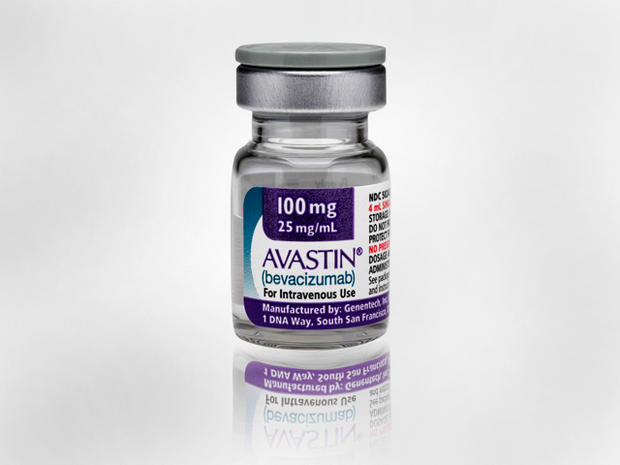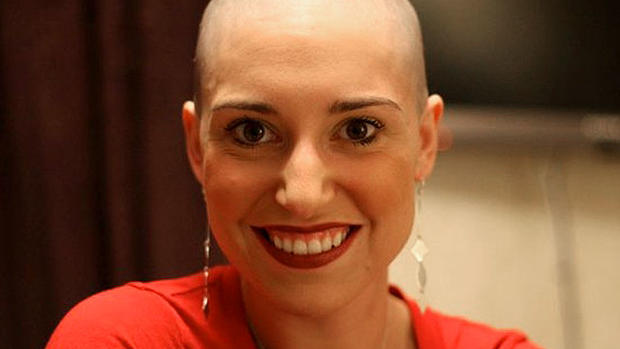Avastin decision dismays breast cancer patients
(CBS/AP) Breast cancer patients are expressing dismay over last week's FDA's decision that Avastin should no longer be used to treat advanced breast cancer.
PICTURES: Bald & beautiful: Breast cancer patients' inspiring stories
Avastin has been hailed for its effectiveness against other forms of cancer. But the agency said on Friday that the drug seems to offer false hope for breast cancer patients. Studies haven't shown that it extends the lives of those patients or brings enough benefit to outweigh its potentially dangerous side effects.
"I did not come to this decision lightly," said FDA commissioner Dr. Margaret Hamburg. "Sometimes despite the hopes of investigators, patients, industry and even the FDA itself, the results of rigorous testing can be disappointing."
Avastin remains still on the market to treat colon, lung, kidney, and brain cancers, and doctors are free to prescribe it as they see fit. So even though Avastin's approval for breast cancer has been revoked, women could still get it - though their insurers may not pay for it. Including infusion fees, a year's treatment with Avastin can run $100,000.
The breast cancer organization Susan G. Komen for the Cure said it respected the FDA decision and that it was time for researchers to focus on finding so-called biomarkers that would tell which drug is right for which patient.
"Each type of cancer is very different from another in important ways, and in the end it's no surprise that Avastin's effectiveness may not be equivalent against all types of cancer," said Dr. Neal Meropol of University Hospitals Case Medical Center in Cleveland, who has long used Avastin for colon cancer.
But the ruling didn't sit well with some breast cancer patients who have been taking the drug.
"It's saved my life," said Sue Boyce of Chicago. The 54-year-old has taken Avastin since joining a research study in 2003. Her breast cancer eventually spread to her lungs, liver, and brain, but Boyce said she is faring well.
"So I'm hoping the insurance company will grandfather me in to continue taking it," she said.
The Avastin story began in 2008, when a study suggested the drug could delay tumor growth in breast cancer patients whose cancer had spread elsewhere in the body. Over the objection of its own advisers, FDA gave Avastin conditional approval - it could be sold for such women while its maker, Genentech, tried to prove it really worked.
Problem was, the antitumor effect proved to be smaller than first thought. Across repeated studies, patients given Avastin didn't live longer or have a higher quality of life. And the drug can cause severe high blood pressure, bleeding, heart attack or heart failure and tears in the stomach and intestines, the FDA concluded.
Genentech had argued the drug should remain available while it conducted more research to see if might help certain breast cancer patients. Some patients and their doctors had argued passionately for the drug.
"There certainly are patients who benefit tremendously," said Boyce's oncologist, Dr. Melody Cobleigh of Rush University Medical Center. "We'll just be battling with the insurance companies."
"For those not fortunate enough to be on (a government health plan) or an insurance plan that covers it, it's a death sentence," Christi Turnage of Madison, Miss., said of the FDA decision. Her breast cancer had moved into her lungs before she began Avastin three years ago and the spreading stopped, but Turnage said her insurer is ending coverage and she will seek financial help from Genentech.
Hamburg said she considered those arguments but that researchers hadn't found any clues to identify who those rare Avastin responders would be. She urged Genentech to do that research, saying the FDA "absolutely" would reconsider if the company could find the right evidence.
Genentech pledged to begin that research.

